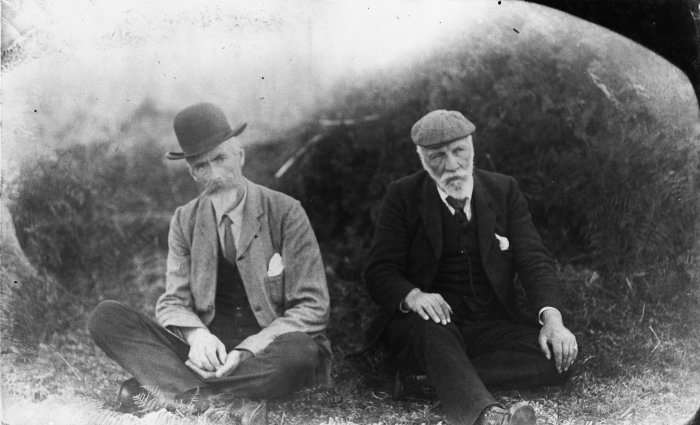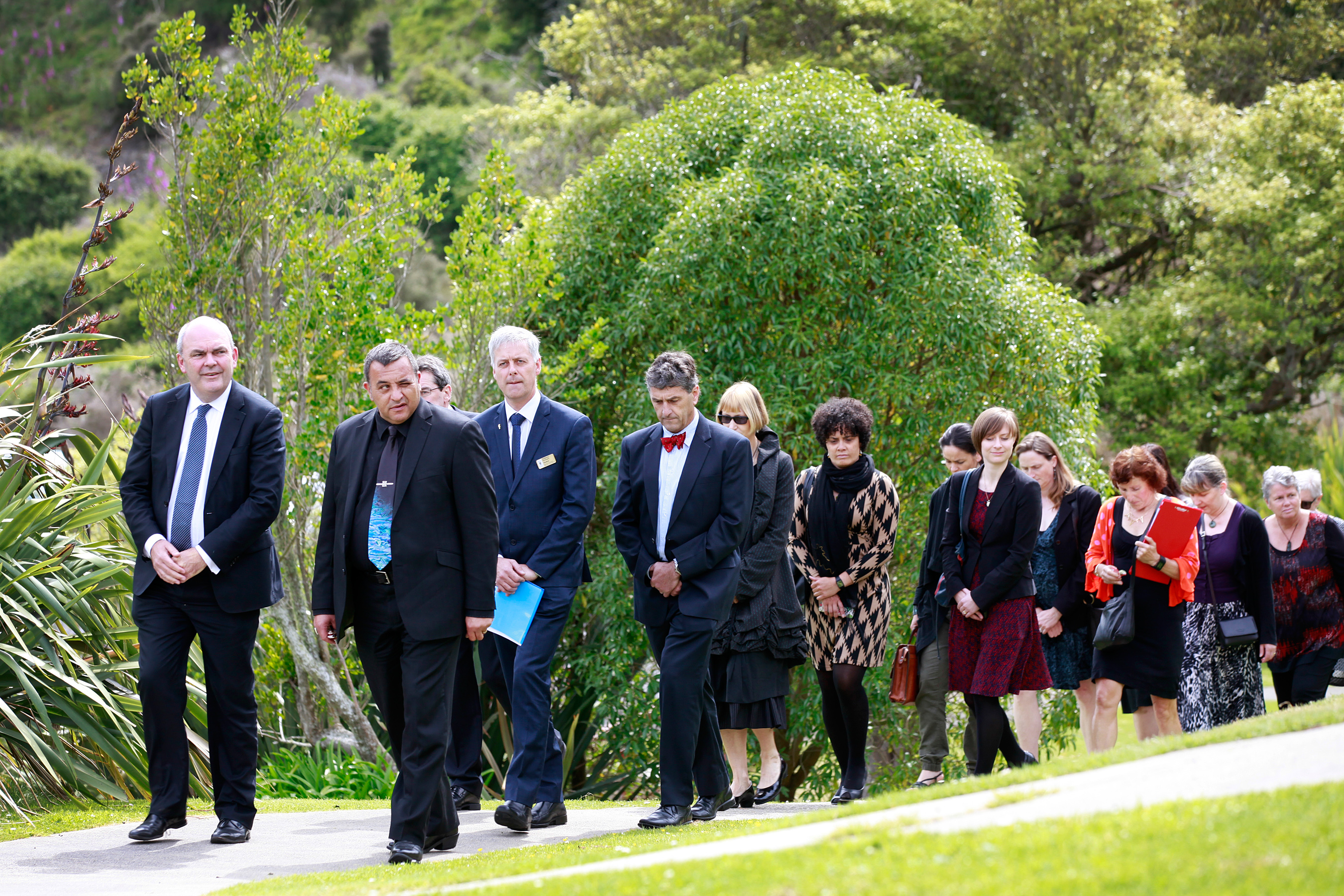|
Annemarie Gillies
Annemarie Gillies is a New Zealand Māori academic, and is Professor of Māori Research at the Eastern Institute of Technology in Hawke's Bay. She was formerly a professor at Massey University. Academic career Gillies is Māori, and affiliates to Ngāti Kahungunu, Ngāti Awa, Te Whanau-a-Apanui and Te Arawa iwi. She worked in the freezing works at Whakatu until they were closed in 1986, and then studied business administration at the Eastern Institute of Technology (EIT). She worked first in accounts, and later completed a National Certificate of Business Studies. Gillies went on to gain a Bachelor of Business Studies majoring in Accountancy from Massey University. She then managed the Te Pūmanawa Hauora Māori Health Research Programme at Massey. In 2006, Gillies completed a PhD titled ''Kia taupunga te ngā kau Māori: anchoring Māori health workforce potential'' at Massey University, supervised by Mason Durie. Gillies was Director of Te Au Rangahau, the Māori Busines ... [...More Info...] [...Related Items...] OR: [Wikipedia] [Google] [Baidu] |
Māori People
The Māori (, ) are the indigenous Polynesian people of mainland New Zealand (). Māori originated with settlers from East Polynesia, who arrived in New Zealand in several waves of canoe voyages between roughly 1320 and 1350. Over several centuries in isolation, these settlers developed their own distinctive culture, whose language, mythology, crafts, and performing arts evolved independently from those of other eastern Polynesian cultures. Some early Māori moved to the Chatham Islands, where their descendants became New Zealand's other indigenous Polynesian ethnic group, the Moriori. Initial contact between Māori and Europeans, starting in the 18th century, ranged from beneficial trade to lethal violence; Māori actively adopted many technologies from the newcomers. With the signing of the Treaty of Waitangi in 1840, the two cultures coexisted for a generation. Rising tensions over disputed land sales led to conflict in the 1860s, and massive land confiscations, to which ... [...More Info...] [...Related Items...] OR: [Wikipedia] [Google] [Baidu] |
Hapū
In Māori and New Zealand English, a ' ("subtribe", or "clan") functions as "the basic political unit within Māori society". A Māori person can belong to or have links to many hapū. Historically, each hapū had its own chief and normally operated independently of its iwi (tribe). Etymology The word literally means "pregnant", and its usage in a socio-political context is a metaphor for the genealogical connection that unites hapū members. Similarly, the Māori word for land, whenua, can also mean "placenta", metaphorically indicating the connection between people and land, and the Māori word for tribe, iwi, can also mean "bones", indicating a link to ancestors. Definition As named divisions of (tribes), hapū membership is determined by genealogical descent; a hapū consists of a number of (extended family) groups. The Māori scholar Hirini Moko Mead states the double meanings of the word hapū emphasise the importance of being born into a hapū group. As a metaphor t ... [...More Info...] [...Related Items...] OR: [Wikipedia] [Google] [Baidu] |
Ngāti Awa People
Iwi () are the largest social units in New Zealand Māori society. In Māori roughly means "people" or "nation", and is often translated as " tribe", or "a confederation of tribes". The word is both singular and plural in the Māori language, and is typically pluralised as such in English. groups trace their ancestry to the original Polynesian migrants who, according to tradition, arrived from Hawaiki. Some cluster into larger groupings that are based on (genealogical tradition) and known as (literally " canoes", with reference to the original migration voyages). These super-groupings generally serve symbolic rather than practical functions. In pre-European times, most Māori were allied to relatively small groups in the form of ("sub-tribes") and ("family"). Each contains a number of ; among the of the Ngāti Whātua iwi, for example, are Te Uri-o-Hau, Te Roroa, Te Taoū, and Ngāti Whātua-o-Ōrākei. Māori use the word '' rohe'' to describe the territory or ... [...More Info...] [...Related Items...] OR: [Wikipedia] [Google] [Baidu] |
Ngāti Kahungunu People
Iwi () are the largest social units in New Zealand Māori society. In Māori roughly means "people" or "nation", and is often translated as "tribe", or "a confederation of tribes". The word is both singular and plural in the Māori language, and is typically pluralised as such in English. groups trace their ancestry to the original Polynesian migrants who, according to tradition, arrived from Hawaiki. Some cluster into larger groupings that are based on (genealogical tradition) and known as (literally "canoes", with reference to the original migration voyages). These super-groupings generally serve symbolic rather than practical functions. In pre-European times, most Māori were allied to relatively small groups in the form of ("sub-tribes") and ("family"). Each contains a number of ; among the of the Ngāti Whātua iwi, for example, are Te Uri-o-Hau, Te Roroa, Te Taoū, and Ngāti Whātua-o-Ōrākei. Māori use the word ''rohe'' to describe the territory or boundaries ... [...More Info...] [...Related Items...] OR: [Wikipedia] [Google] [Baidu] |
Academic Staff Of Massey University
An academy (Attic Greek: Ἀκαδήμεια; Koine Greek Ἀκαδημία) is an institution of secondary or tertiary higher learning (and generally also research or honorary membership). The name traces back to Plato's school of philosophy, founded approximately 385 BC at Akademia, a sanctuary of Athena, the goddess of wisdom and skill, north of Athens, Greece. Etymology The word comes from the ''Academy'' in ancient Greece, which derives from the Athenian hero, ''Akademos''. Outside the city walls of Athens, the gymnasium was made famous by Plato as a center of learning. The sacred space, dedicated to the goddess of wisdom, Athena, had formerly been an olive grove, hence the expression "the groves of Academe". In these gardens, the philosopher Plato conversed with followers. Plato developed his sessions into a method of teaching philosophy and in 387 BC, established what is known today as the Old Academy. By extension, ''academia'' has come to mean the accumulation, dev ... [...More Info...] [...Related Items...] OR: [Wikipedia] [Google] [Baidu] |
New Zealand Women Academics
New is an adjective referring to something recently made, discovered, or created. New or NEW may refer to: Music * New, singer of K-pop group The Boyz Albums and EPs * ''New'' (album), by Paul McCartney, 2013 * ''New'' (EP), by Regurgitator, 1995 Songs * "New" (Daya song), 2017 * "New" (Paul McCartney song), 2013 * "New" (No Doubt song), 1999 *"new", by Loona from '' Yves'', 2017 *"The New", by Interpol from ''Turn On the Bright Lights'', 2002 Acronyms * Net economic welfare, a proposed macroeconomic indicator * Net explosive weight, also known as net explosive quantity * Network of enlightened Women, a conservative university women's organization * Next Entertainment World, a South Korean film distribution company Identification codes * Nepal Bhasa language ISO 639 language code * New Century Financial Corporation (NYSE stock abbreviation) * Northeast Wrestling, a professional wrestling promotion in the northeastern United States Transport * New Orleans Lakefront Ai ... [...More Info...] [...Related Items...] OR: [Wikipedia] [Google] [Baidu] |
New Zealand Academics
New is an adjective referring to something recently made, discovered, or created. New or NEW may refer to: Music * New, singer of K-pop group The Boyz Albums and EPs * ''New'' (album), by Paul McCartney, 2013 * ''New'' (EP), by Regurgitator, 1995 Songs * "New" (Daya song), 2017 * "New" (Paul McCartney song), 2013 * "New" (No Doubt song), 1999 *"new", by Loona from '' Yves'', 2017 *"The New", by Interpol from ''Turn On the Bright Lights'', 2002 Acronyms * Net economic welfare, a proposed macroeconomic indicator * Net explosive weight, also known as net explosive quantity * Network of enlightened Women, a conservative university women's organization * Next Entertainment World, a South Korean film distribution company Identification codes * Nepal Bhasa language ISO 639 language code * New Century Financial Corporation (NYSE stock abbreviation) * Northeast Wrestling, a professional wrestling promotion in the northeastern United States Transport * New Orleans Lakefront Ai ... [...More Info...] [...Related Items...] OR: [Wikipedia] [Google] [Baidu] |
Aotearoa Research Ethics Committee
''Aotearoa'' () is the current Māori-language name for New Zealand. The name was originally used by Māori in reference to only the North Island, with the name of the whole country being ''Aotearoa me Te Waipounamu'' ("North Island and South Island"). In the pre-European era, Māori did not have one name for the country as a whole. Several meanings for Aotearoa have been proposed for the name; the most popular translation usually given is "land of the long white cloud", or variations thereof. This refers to the cloud formations which helped early Polynesian navigators find the country. Beginning in the late 20th century, ''Aotearoa'' has become widespread in the bilingual names of national organisations and institutions. Since the 1990s, it has been customary for particular parties to sing the New Zealand national anthem, " God Defend New Zealand" (or "Aotearoa"), in both Māori and English, exposing the name to a wider audience. New Zealand English speakers pronounce the ... [...More Info...] [...Related Items...] OR: [Wikipedia] [Google] [Baidu] |
National Science Challenges
The National Science Challenges (NSC) are 11 ten-year collaborative science programmes in New Zealand, established in 2014. They are "cross-disciplinary, mission-led programmes designed to tackle New Zealand’s biggest science-based challenges", and are funded through the Ministry of Business, Innovation and Employment. Establishment The NSC initiative was developed over 2012–13 by the New Zealand government's Ministry of Business, Innovation and Employment (MBIE) as a restructure of national scientific research funding. Established in advance of the 2014 general election, the Challenges were funded with $680.8 million over ten years, broken into two five-year phases. The science challenges they address were intended to be "the most important national-scale issues facing New Zealand". The challenges are collaborative and multi-disciplinary, creating new teams of researchers drawn from universities and other research institutions, iwi, Crown Research Institutes, businesses, ... [...More Info...] [...Related Items...] OR: [Wikipedia] [Google] [Baidu] |
Centre Of Research Excellence
The Centres of Research Excellence (CoREs) are interorganisational research networks in New Zealand funded through the Centres of Research Excellence scheme, which is administered by the Tertiary Education Commission (TEC). History The scheme was set up in 2002 with the aim "to build networks to connect high-performing researchers in the university system". A 2001 review of university research by TEC had revealed a fragmented research system, which did not encourage collaboration and was based on the number of students enrolled or on a small and short term agreed programme of research, and could not be applied strategically to fund areas of importance to New Zealand's development. The CoRE fund and the Performance Based Research Fund were set up as complementary funds to address these problems. The CoREs were intended to be networks of "high-performing researchers" that would be "strategically focused and linked to New Zealand’s future economic and societal needs, of excellent ... [...More Info...] [...Related Items...] OR: [Wikipedia] [Google] [Baidu] |


